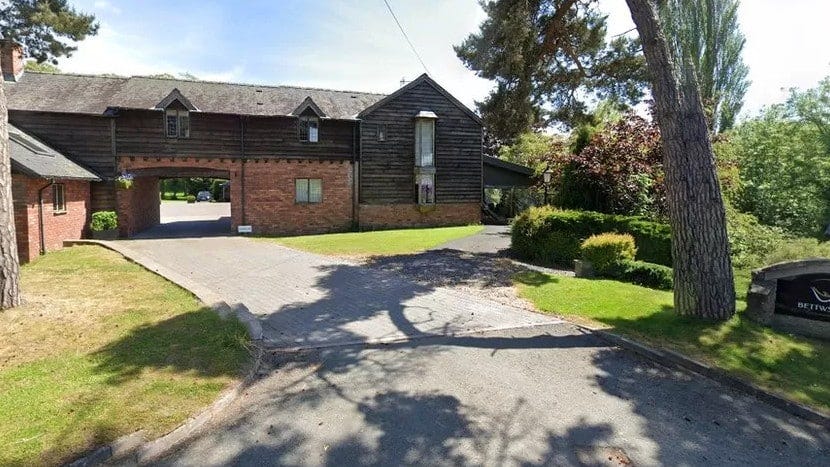
Research by Animal Aid has found that the Welsh government may have subsidised the UK's biggest pheasant-rearing farm. The pheasants are bred to be shot for 'sport'.
Bettws Hall game farm raises raises more than 1.7 million pheasant and partridge chicks a year, which it sells to shooting estates to be killed for ‘fun’. On top of this, it manages six shooting estates with ‘luxury accommodation and catering’. Animal Aid has found that a company based at the farm has received tens of thousands of pounds through the government’s Basic Payment Scheme (BPS) for farmers. Nation.Cymru has reported on the charity's findings. It said:
"a search on the UK Co-ordinating Body’s publicly accessible farm subsidy database shows that Messrs TG Evans and Co – a firm based at Bettws Hall Game Farm near Newtown and named after Trevor Gwyn Evans, whose company G and A Leisure owns Bettws Hall and runs the game shooting business – received payments from the Welsh Government of £37,748.01 in 2021 and £25,148.48 in 2022."
Animal Aid's Fiona Pereira said:
“From Animal Aid’s research, it appears that the owners of the largest game farm in the country, Bettws Hall, receive funds under the BPS. It is not known if the funds are allocated to land used for the game farming and/or shooting business – or to other parcels of land which meet the criteria for funding. It is also not clear how money allocated to businesses or farmers is used, or what checks are in place to determine eligibility for claiming.”
Avian flu
Bettws Hall is the same farm that was forced into lockdown in April after an outbreak of avian flu. At the time, Protect the Wild reported:
"The Welsh Government announced a 3km (1.8 mile) protection zone in the area on 13th April and a 10km (6.2 mile) surveillance zone was set up at the same time. Two further protection and surveillance zones covering almost the same area were then announced on 23 and 27 April.
The protection zone imposes strict biosecurity rules, including restrictions on the movement of poultry, eggs and slurry. Any vehicles which enter or leave a site must be disinfected and – most importantly – no birds can be released."
Avian flu is devastating for birds worldwide. It's estimated that up to 500 million wild birds have died, while vast numbers of chickens have been killed. It is industries like that at Bettws Hall that act as catalysts for the spread of the disease. The industry releases up to 40 million pheasants into our ecosysytem every year in order to be shot for profit.
Bettws Farm
Eligibility
Animal Aid questioned Messrs TG Evans and Co's eligibility for government subsidies under the BPS. Pereira stated:
"The structures used to house game birds are ineligible features for the purposes of claiming BPS. However, other areas, such as permanent grassland, permanent crops or arable crops within a parcel may be eligible for funding.”
However, a Welsh government source told Nation.Cymru:
“To be eligible a business must undertake agricultural activity. Annex 1 of the EC Treaty lists ‘live animals’ as agricultural products. EC regulation 1308/2013 defines this further to include ‘game’ as an eligible agricultural product. As BPS continues to operate in Wales under retained EU Law the definition of agricultural products remains. Therefore, a farm business which only rears game would be eligible to claim BPS; however, it is likely a business would also keep other livestock and/or perhaps grow arable crops.”
This apparent eligibility goes against the Welsh government stance of being against pheasant shooting. Back in 2019, Natural Resources Wales made the decision to no longer permit the shooting of pheasants in the Welsh national forest. And in March 2023, it began a consultation, asking the public for its thoughts on new regulation for releasing pheasants, partridges and other ‘non-native’ birds killed by the shooting industry. It is considering a licensing system for releasing birds for shooting. The plans would include adding pheasants and red-legged partridges to part 1 of Schedule 9 of the Wildlife and Countryside Act 1981. This means the government would recognise those birds as a potential threat to native biodiversity and habitats. But, as Protect the Wild has consistently pointed out, licencing the shooting industry isn't enough. We need an all-out ban. The shooting industry is not only cruel on the birds murdered for profit, it is also potentially lethal for wild birds, too. Together we can shut it down for good.
Protect the Wild is proud to support people up and down the UK who are on the front line protecting wildlife. We are able to buy the equipment we give out because of paid subscriptions on Substack. While all our content is free, any money we do receive from paid subscriptions is ringfenced and used to buy equipment to put ‘eyes in the field’. It’s a simple idea – but the best ideas usually are! If you’d like to know more we have explained it all in our post “What do we mean by “Empowering people to protect British wildlife“?
If you are working in the field to protect wildlife and would like to apply to our fund please read our T&Cs here first and use the online application form on the same page.



Absolutely right! Shooting birds which have been specially reared isn't sport it's execution. These birds have none of the skills of their wild counterparts! .Might as well shoot.chickens!
Shame on the vile humans who participate in this outdated pathetic activity. I’m not sure why it is called a sport? Standing around with a gun shooting at a live target is hardly a level playing field, perhaps if this sad excuse for a human ran around to catch the bird with his bare hands this might be more of a “sport” ? Sometimes it feels like we are living in the distant past.